
Gut Health 101: How Your Microbiome Affects Digestion, Immunity, and Overall Wellness
Discover how your gut microbiome influences digestion, immune function, and overall health. Learn about probiotics, prebiotics, fiber, and practical tips for a healthier gut.
Verdu Team
The team behind Verdu, your AI-powered nutrition companion
Bloating after meals. Constant fatigue. Catching every cold that goes around. Unexplained mood swings. If any of these sound familiar, the answer might not be what you think—it could be living in your gut.
Your digestive system is home to trillions of tiny organisms that quietly influence everything from how you digest food to how well your immune system fights off infections. Understanding this hidden ecosystem, called the gut microbiome, might be the missing piece in your health puzzle.
Let's explore what the gut microbiome actually is, how it affects your body in ways you'd never expect, and most importantly, what you can do to support it starting today.
What Is the Gut Microbiome?
Think of your gut as a bustling city. According to Cleveland Clinic, this microscopic metropolis contains trillions of microorganisms from over 1,000 different species, including bacteria, viruses, fungi, and even parasites. And here's the fascinating part: your gut microbiome is completely unique to you, like a fingerprint.
These microbes aren't just hitchhikers—they're active participants in your health. They break down food, manufacture vitamins, protect against harmful invaders, and communicate with nearly every system in your body.
The composition of your microbiome is shaped by factors like your diet, stress levels, medications (especially antibiotics), sleep patterns, and even where you were born and how you were delivered as a baby. It's constantly changing based on your lifestyle choices, which means you have more control over it than you might think.
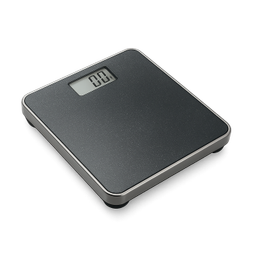
How the Microbiome Affects Digestion
When you eat a meal, your gut microbiome goes to work. Here's what these microscopic helpers do behind the scenes:
Breaking Down Complex Carbohydrates and Fiber
Your body can't fully digest dietary fiber on its own—but your gut bacteria can. When they ferment fiber, they produce short-chain fatty acids (SCFAs) like butyrate, which nourish the cells lining your intestines and support overall gut health.
Synthesizing Essential Vitamins
According to Cleveland Clinic, gut bacteria help produce vitamins B1, B9 (folate), B12, and vitamin K. These are critical for energy production, red blood cell formation, and proper blood clotting.
Assisting with Metabolism
Your microbiome helps metabolize bile acids and influences how efficiently your body absorbs nutrients from food. This can affect everything from your energy levels to how your body stores fat.
When your microbiome is balanced and diverse, digestion tends to run smoothly. But when it's disrupted—a state called dysbiosis—you might experience bloating, irregular bowel movements, food intolerances, or nutrient deficiencies.
Not sure if your meals are supporting healthy digestion? Verdu's AI-powered meal analysis can help you identify patterns in your eating that might be affecting your gut health, like insufficient fiber or lack of variety in plant foods.

The Gut-Immunity Connection: Why 70-80% of Your Immune System Lives in Your Gut
Here's a stat that surprises most people: Cleveland Clinic reports that up to 80% of your body's immune cells are located in your gut. That's right—your digestive tract isn't just about processing food; it's your body's primary defense headquarters.
How It Works
Your gut microbiome essentially trains your immune system. From an early age, beneficial bacteria teach your immune cells to distinguish between harmless substances (like food proteins) and actual threats (like pathogenic bacteria or viruses).
Healthy gut bacteria also:
- Compete with harmful microbes for space and nutrients, preventing them from taking hold
- Maintain the gut barrier, preventing toxins and pathogens from leaking into your bloodstream
- Produce antimicrobial compounds that directly fight off invaders
- Regulate inflammation, helping your immune system respond appropriately without overreacting
What Happens When Your Microbiome Is Out of Balance?
An unhealthy microbiome can lead to:
- Weakened immune responses, making you more susceptible to infections
- Chronic inflammation linked to conditions like inflammatory bowel disease
- Autoimmune issues, where the immune system mistakenly attacks your own tissues
- Increased allergies and sensitivities
Research from NIH's PubMed Central shows that the interplay between your gut microbiota, the intestinal lining, and the immune system is complex and critical for overall health.
Gut Health and Overall Wellness: Beyond Digestion
The influence of your gut microbiome extends far beyond your stomach. Here's how it affects other systems in your body:
The Gut-Brain Axis
Your gut and brain are in constant communication through the vagus nerve and chemical signals. According to Cleveland Clinic, gut bacteria produce and stimulate neurotransmitters like serotonin, dopamine, and GABA—chemicals that regulate mood, anxiety, and even sleep.
Ever had "butterflies in your stomach" when nervous or felt nauseous from stress? That's the gut-brain connection in action. An unhealthy microbiome has been linked to increased anxiety, depression, and even cognitive issues.
Metabolism and Weight Regulation
Your microbiome influences how your body processes food and stores energy. Certain bacterial species are associated with obesity and metabolic syndrome, while others are linked to healthy weight maintenance and better blood sugar control.
The endocrine system, which regulates hormones related to hunger, metabolism, and fat storage, is also influenced by signals from your gut microbiome.
Cardiovascular Health
Emerging research suggests that gut bacteria affect heart health by influencing cholesterol levels, blood pressure, and inflammation throughout the body.
The bottom line? A healthy gut microbiome supports a healthy body and mind.
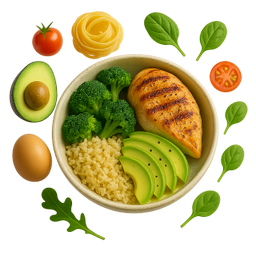
Foods That Support Your Microbiome
The good news? You can actively improve your gut health through the foods you eat. Here are the key players:
Probiotics: The "Good Bacteria"
Probiotics are live beneficial bacteria found in fermented foods. Harvard Health recommends incorporating these into your diet to increase good bacteria in your gut:
- Yogurt with live cultures (look for "contains live and active cultures" on the label)
- Kefir (a fermented milk drink, even more probiotic-rich than yogurt)
- Sauerkraut (fermented cabbage, choose unpasteurized for live cultures)
- Kimchi (Korean fermented vegetables with probiotics and vitamins)
- Miso (fermented soy paste used in Japanese cuisine)
- Tempeh (fermented soy, great plant-based protein)
- Kombucha (fermented tea with a variety of beneficial bacteria)
- Pickles (naturally fermented, not vinegar-based)
Tip: Start slowly if you're new to fermented foods—your gut may need time to adjust.
Prebiotics: Food for Your Good Bacteria
Prebiotics are types of fiber that feed your beneficial gut bacteria, helping them thrive. According to Harvard Health, good sources include:
- Beans and legumes
- Whole grains (oats, barley, quinoa)
- Garlic and onions
- Leeks
- Asparagus
- Bananas (especially slightly green ones)
- Jerusalem artichokes
- Chicory root
Fiber: The Foundation of Gut Health
Here's a sobering statistic from the VA's Whole Health Library: only 5% of Americans consume the recommended amount of daily fiber, which is 21-38 grams depending on age and sex. The average American gets just 16.2 grams per day.
Why does this matter? Dietary fiber is fermented by your gut bacteria, producing those beneficial short-chain fatty acids we mentioned earlier. Diets high in fiber, fruits, and vegetables bring about the most variety and richness of bacterial growth in the gut.
High-Fiber Foods to Prioritize:
- Vegetables (broccoli, Brussels sprouts, carrots, leafy greens)
- Fruits (apples, berries, pears—with the skin on)
- Whole grains (brown rice, whole wheat, oats)
- Legumes (lentils, chickpeas, black beans)
- Nuts and seeds (almonds, chia seeds, flaxseeds)
Wondering if you're getting enough fiber throughout the day? Verdu can analyze your meals to track fiber intake and suggest simple swaps or additions to help you hit your targets—like adding berries to breakfast or choosing whole grain options.
Practical Tips for Improving Gut Health
Ready to support your microbiome? Here are actionable steps you can start today:
1. Eat a Diverse, Plant-Rich Diet
The more variety of plant foods you eat, the more diverse your gut microbiome becomes. Aim for 30 different plant foods per week—this includes fruits, vegetables, whole grains, legumes, nuts, seeds, and herbs.
Diversity is key because different bacterial species thrive on different types of fiber and nutrients.
2. Include Fermented Foods Regularly
Try to incorporate at least one serving of probiotic-rich fermented food into your daily routine. This could be:
- A cup of yogurt with breakfast
- A side of kimchi or sauerkraut with lunch
- Miso soup with dinner
- Kombucha as an afternoon drink
3. Prioritize Fiber at Every Meal
Since most Americans are falling short on fiber, make it a priority:
- Add vegetables to every meal (even breakfast—think spinach in your eggs)
- Snack on fruits, nuts, and seeds instead of processed options
- Choose whole grains over refined grains
- Add beans or lentils to soups, salads, and main dishes
4. Use Antibiotics Carefully
Antibiotics can be lifesaving, but they also wipe out both harmful and beneficial bacteria. Cleveland Clinic recommends:
- Only using antibiotics when medically necessary
- Completing the full course as prescribed
- Eating probiotic-rich foods or taking a probiotic supplement during and after antibiotic treatment
5. Manage Stress and Prioritize Sleep
Chronic stress and poor sleep can negatively impact your gut microbiome. The gut-brain connection works both ways—stress hormones can disrupt the balance of gut bacteria, and an unhealthy gut can contribute to anxiety and mood issues.
Practice stress-reduction techniques like deep breathing, exercise, meditation, or simply spending time in nature.
6. Stay Hydrated
Water is essential for digestion and helps fiber do its job effectively. Aim for 8-10 glasses per day, and more if you're active or live in a hot climate.
7. Limit Processed Foods and Added Sugars
Highly processed foods and excess sugar can feed harmful bacteria and reduce microbial diversity. Focus on whole, minimally processed foods whenever possible.
Struggling to plan gut-friendly meals? Verdu's AI can generate personalized recipe suggestions rich in fiber, fermented foods, and diverse plant ingredients based on your preferences and nutrition goals. It takes the guesswork out of building a microbiome-supporting diet.
Take Control of Your Gut Health Today
Your gut microbiome is one of the most powerful and underappreciated factors in your overall health. From digestion and immunity to mental clarity and energy levels, these trillions of microorganisms are working around the clock to keep you functioning at your best.
The great news? You have the power to support them through simple, sustainable dietary choices:
- Eat a colorful variety of plant foods
- Incorporate fermented foods regularly
- Prioritize fiber at every meal
- Stay hydrated and manage stress
You don't need to overhaul your entire diet overnight. Start with one small change—add a serving of yogurt, swap white rice for brown, or try kimchi for the first time. Your gut (and your immune system, brain, and metabolism) will thank you.
Start Nourishing Your Microbiome with Verdu
Making gut-friendly food choices doesn't have to be complicated. Verdu's AI-powered nutrition insights help you track fiber intake, discover probiotic-rich recipes, and ensure your meals support a healthy, diverse microbiome—all without the tedious manual work.
Download Verdu and take the guesswork out of gut health:
Your journey to better gut health starts with one meal. Let's make it count.
Related Articles
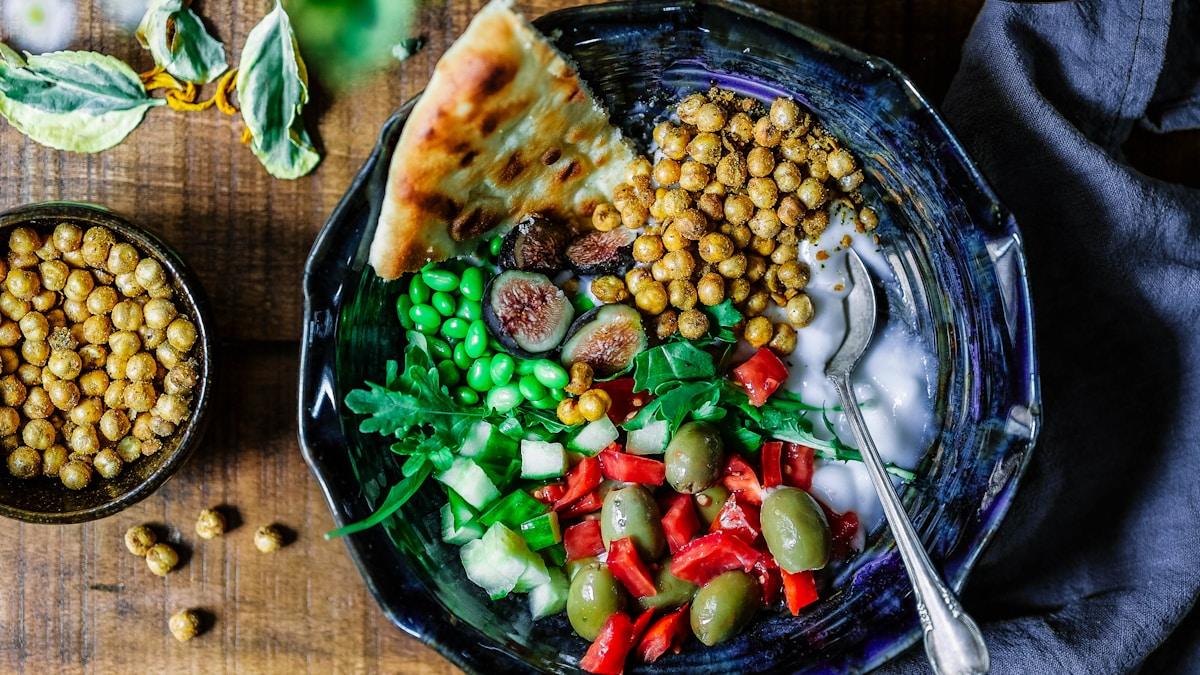
Boost Your Energy Naturally: Science-Backed Nutrition Strategies to Fight Fatigue
Discover evidence-based nutrition strategies to boost energy levels naturally, fight fatigue, and maintain metabolism throughout the day—no caffeine crash required.
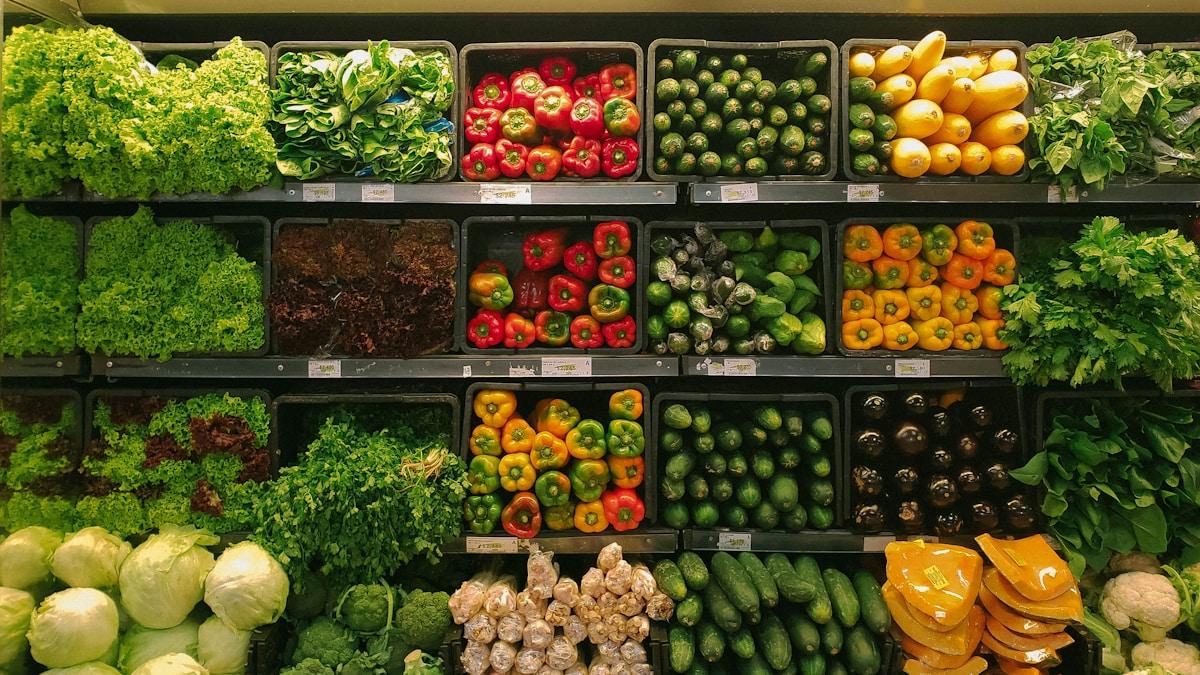
Budget-Friendly Healthy Eating: 10 Ways to Eat Nutritious Meals on $50 a Week
Discover 10 proven strategies to eat healthy on a tight budget. Learn how to enjoy nutritious meals for $50 per week with smart shopping, meal planning, and budget-friendly food choices.
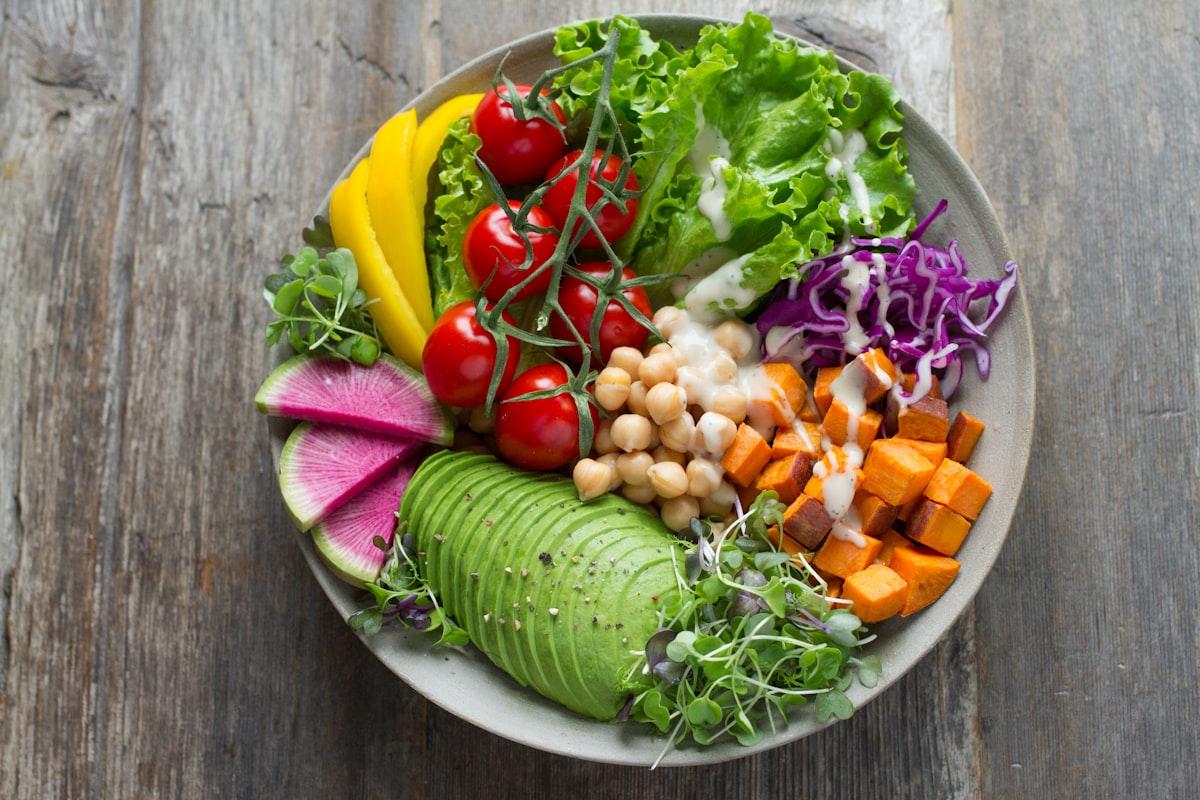
Meal Prep for Beginners: 7 Simple Strategies to Save Time and Eat Healthier All Week
Master meal prep with these 7 beginner-friendly strategies. Save hours each week, eat healthier, and stop stressing about what's for dinner.